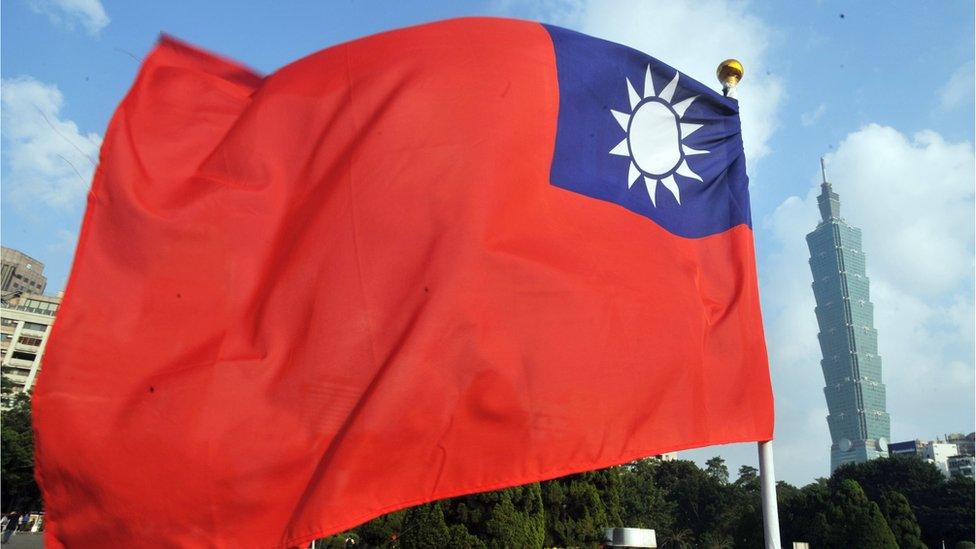Taiwan election: How a penitent pop star may have helped Tsai win
- Published

Chou Tzuyu is the only Taiwanese member of Twice, a popular Korean girl band
Taiwanese voters elected their first female president on Saturday; Tsai Ing-wen. But another very different woman - a 16-year-old pop star - may have inadvertently helped Ms Tsai win votes, and is now also very much the focus of attention, says the BBC's Cindy Sui in Taipei.
Chou Tzuyu, a Taiwanese singer and dancer in the Korean girl group Twice, fell on the wrong side of China when she innocently showed the flag of the Republic of China - Taiwan's official name - along with the Korean flag, in a variety show shown online.
A pro-China Taiwanese celebrity Huang An then named her as someone who strongly supports Taiwan's independence from China. Beijing considers the island its province despite the two sides being ruled separately since the end of the Chinese civil war in 1949.
That led to China's Anhui Television Station cancelling a scheduled performance by Twice on its widely watched and money-earning Chinese New Year's Eve program. Afraid of losing more contracts, JYP Entertainment, the talent agency and music production company Chou has signed with, cancelled her appearances in China.
'I made a mistake in my image'
What happened next may have played a part in Ms Tsai's landslide victory.
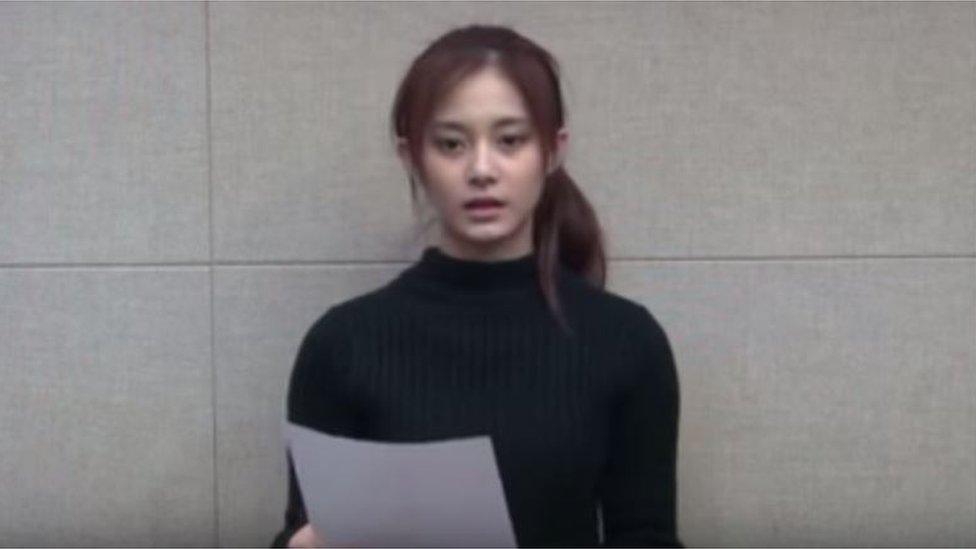
The video showed a plainly dressed and meek looking Chou bowing deeply and apologising repeatedly
In a video which JYP Entertainment posted online, external the day before the election, Chou bowed deeply and apologised profusely.
"There's only one China. The two sides of the Taiwan Strait are one. I will always consider myself as a Chinese person and feel proud of this.
"As a Chinese person, I feel very very sorry and guilty that my inappropriate words and actions while abroad harmed my company and the feelings of netizens on both sides of the Taiwan Strait," Chou said while looking sad on camera.
"I've decided to terminate all my activities in China and seriously reflect on this. Once again I apologise to everyone. I'm sorry," Chou said, bowing again after she finished reading her statement.
Many Taiwanese people waking up on election day watched the video and ignited in united anger - they felt it was humiliating and a sign of Taiwan's predicament that Chou had to apologise for expressing her Taiwanese identity and for showing her "nation's" flag.
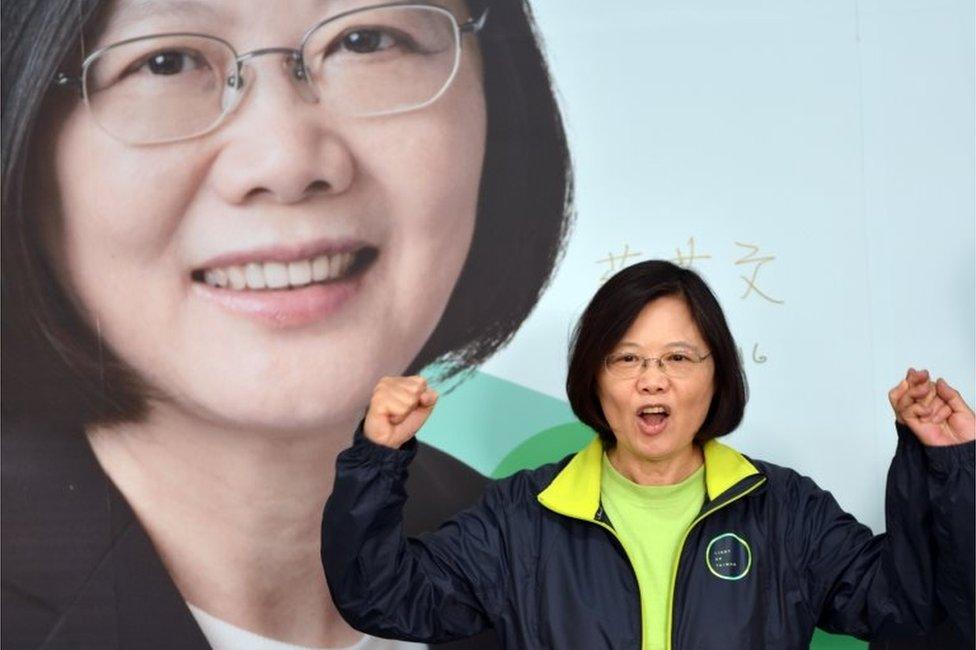
Tsai Ing-wen said the Chou incident would be a reminder to her of the need for Taiwanese strength
To many people here, it was a reminder of their biggest peeve - that Taiwan, which they consider a sovereign country, is not recognised as one officially and is denied membership in the United Nations as well as in many international groups, including the International Civil Aviation Organization, membership of which most nations take for granted.
Facebook and other social media were flooded with comments like this on the eve - and day - of the election:
"If someone forces you to forget something you shouldn't forget, you should revolt and fight… Those of you who haven't voted yet, use your vote to fight back. Today is D-Day," wrote one person who identified himself as Chung Nian-huang on Facebook.
By Monday, the video had been viewed more than 5.7 million times, with more than 300,000 dislikes and 22,000 likes, as well as more than 140,000 comments.
'As if Britain got upset with Beyonce'
Ms Tsai would have won even if the video hadn't been posted, but some scholars believe the incident may have contributed another one or two percentage points.
Her Democratic Progressive Party (DPP) has traditionally favoured independence for Taiwan and Ms Tsai herself has insisted the future of Taiwan and its relationship with China should be determined by Taiwanese people - a view widely shared by many Taiwanese, especially young people.
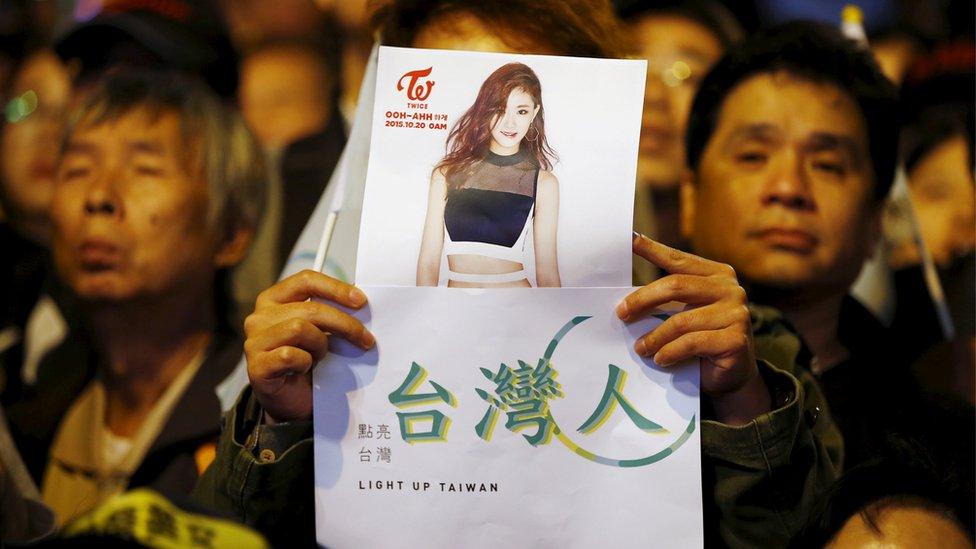
Chou became an unexpected rallying point for Tsai-supporting Taiwanese
In her victory speech, Ms Tsai also referred to the incident:
"Over the past few days, we have seen news that has shaken Taiwanese society. An entertainer - a young 16-year-old girl - working in South Korea - recently attracted opposition after she was filmed holding the Republic of China flag. This incident has angered many Taiwanese people, regardless of their political affiliation," she said.
"This particular incident will serve as a constant reminder to me about the importance of our country's strength and unity to those outside our borders. This will be one of the most important responsibilities for me as the next president of the Republic of China," Tsai added.
Non-Taiwanese also posted comments on Facebook:
"For those [who] are confused, it's kinda like if Beyonce held up the American flag and British people got upset because America once belonged to Britain, so Britain would force Beyonce to apologise even though America is clearly its own country," said one.
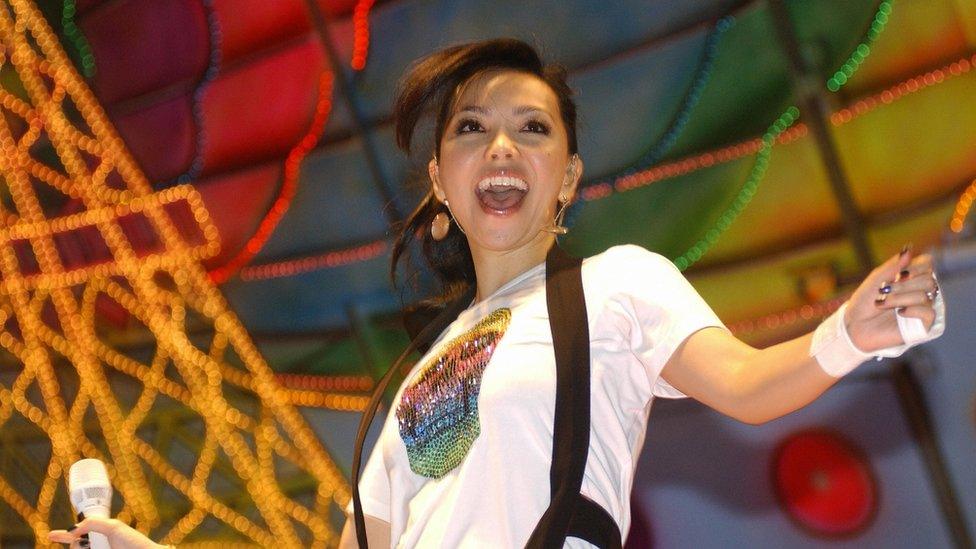
Taiwanese pop star A-Mei has also fallen foul of the pro-China lobby in the past, and was banned from China for a year
It was not the first time a Taiwanese celebrity had suffered consequences from China. In 2000, singer A-Mei was banned from performing in China for a year after singing Taiwan's national anthem at the inauguration of the last president from the DPP.
In a sign of how the issue has become highly politicised, another Taiwanese celebrity, Show Luo, has been punished by "netizens" for simply saying "We're all Chinese" at a movie premier in China last week when he was asked how he felt about working with Chinese entertainers.
A local TV station reported that people told him: "Go back to China" and within just a few hours he lost 10,000 fans on his fan page.
JYP, Chou's entertainment company, has reportedly said it did not force her to apologise, and the decision to post the video was made after the company had discussed the matter with Chou's parents, who had agreed.
A local company, meanwhile, wants to buy Chou's contract and bring her back to Taiwan to work so she would not be "mistreated" in such a way abroad.
- Published16 January 2016
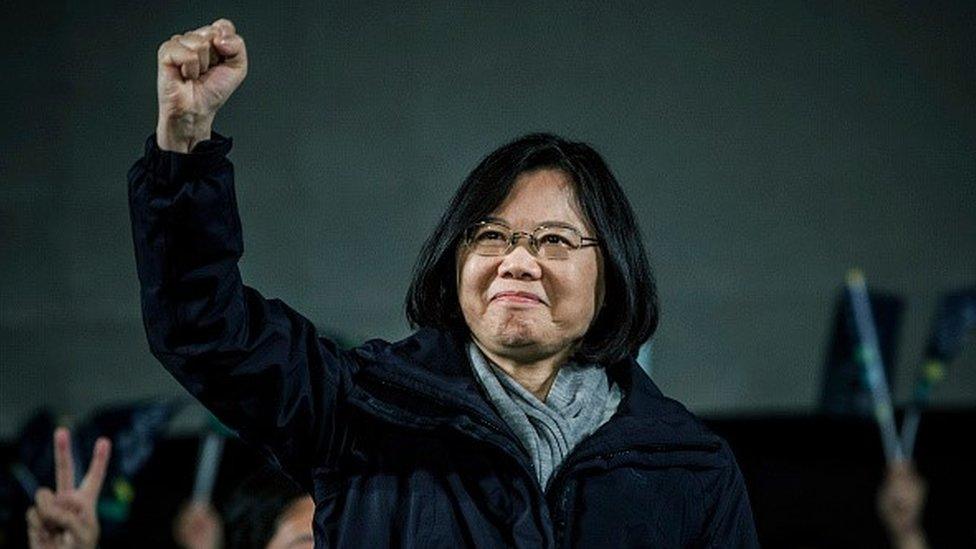
- Published18 January 2016
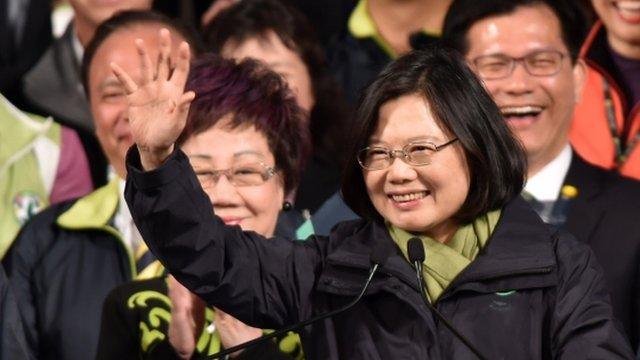
- Published17 January 2016
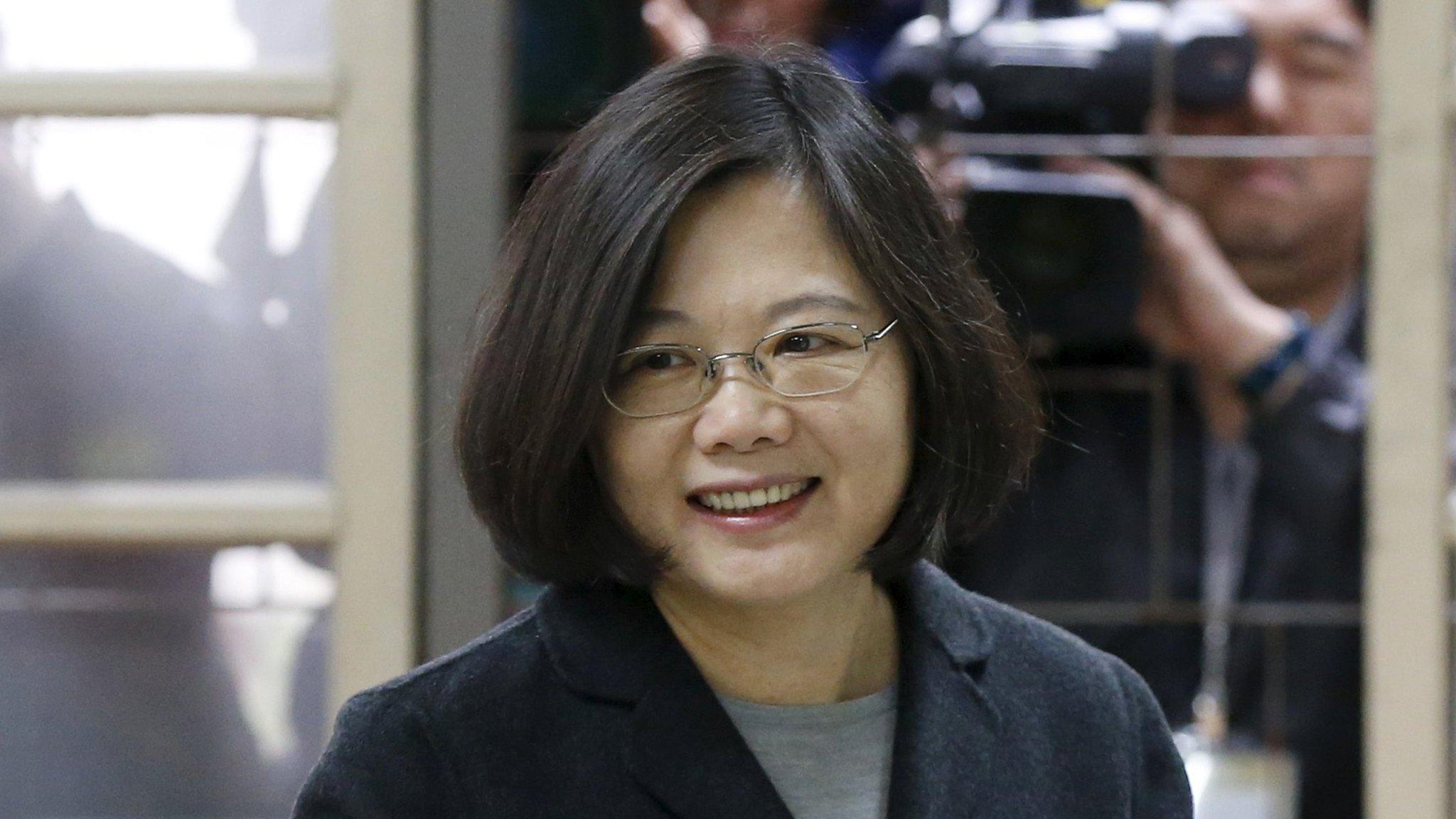
- Published1 January 2016
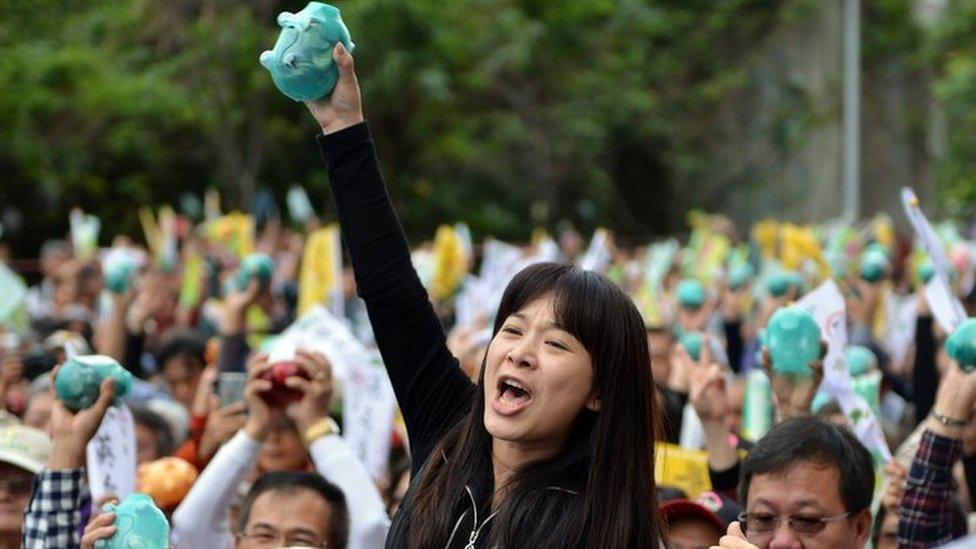
- Published14 October 2024
